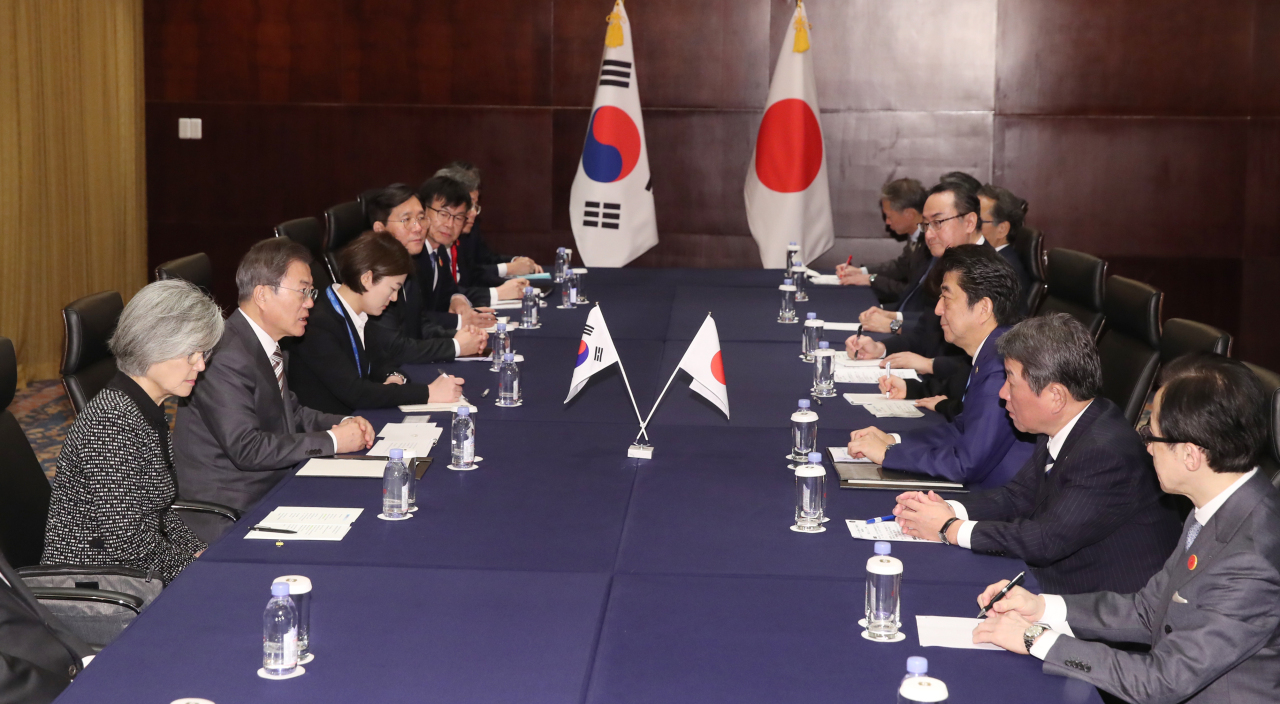Japanese company to appeal S. Korean court decision on asset seizure: reports
By YonhapPublished : Aug. 4, 2020 - 09:26

SEOUL/TOKYO -- A Japanese company plans to appeal a South Korean court decision on the seizure of its assets here to compensate victims of wartime forced labor, reports said Tuesday, a move that would defer the judicial process feared to worsen tensions between the two countries.
Nippon Steel Corp. will file an appeal immediately, as a branch of the Daegu District Court has become able to kick off the procedure to liquidate some of its stake in PNR, a joint venture established with Korea's top steelmaker, POSCO, according to Japan's Kyodo News and NHK.
The appeal is expected to allow the company to buy time before the forced sale of its assets, which observers said would set the stage for sharper confrontation between the countries whose ties have already been frayed over trade and other colonial-era issues.
Nippon Steel has until the end of Sunday to file the appeal before last year's court decision on the asset seizure is finalized.
The assets subject to sales are the 30 percent stake held by Nippon Steel in PNR -- worth about 400 million won ($335,000) by face value.
Tokyo has rejected the compensation calls, arguing the forced labor issue was already settled under a bilateral 1965 treaty that normalized the two countries' ties after Japan's 1910-45 colonization of the Korean Peninsula.
Japan has indicated that it would take retaliatory steps -- on top of its export curbs -- should the court decision be executed. The steps could include higher tariffs, financial sanctions, temporary recall of Japan's top envoy in Seoul and visa restrictions, observers said.
"In close cooperation with the relevant company, we would like to continue to undauntedly respond with all options in our sight from the standpoint of protecting rightful economic activities of Japanese enterprises," Tokyo's Chief Cabinet Secretary Yoshihide Suga told reporters.
The South Korean government has refused to step into the fray, reiterating that it honors the court decision in line with a constitutional principle that guarantees the separation of the executive, legislative and judicial powers.
But it has been bracing for the possibility of Japan's retaliatory measures. As a tit-for-tat move, Seoul could reactivate its suspended decision to end a military intelligence-sharing pact with Tokyo, analysts said.
Kim In-chul, the spokesman for the foreign ministry here, reiterated that Seoul can terminate GSOMIA at any time.
"On Nov. 22 last year, our government suspended its decision to end GSOMIA on the premise that it can end the pact anytime," he told a regular press briefing. "The concept of extending the pact every year no longer applies now."
Kim was responding to a reporter's question of whether Seoul should notify Tokyo of its intent to end GSOMIA later this month if it wants to do so.
The 2016 pact stipulates that such a notice for terminating the pact should come three months before Nov. 23 -- the date when the deal was sealed. Otherwise, the pact is automatically renewed.
The asset seizure decision is based on the Korean Supreme Court's ruling in 2018 that ordered Nippon Steel to pay four forced labor victims 100 million won each to make reparations for their suffering.
The plaintiffs later asked the district court to seize the company's shares. The court granted the request in January last year and sent a notice of the seizure decision to Tokyo to formally deliver it to the company, but Tokyo refused to accept the document.
In June, the court published the notice on its website for a legal procedure, which is taken when such notices are unable to be delivered. As the two-month public notification has ended, the court can proceed with the procedure toward the sale of the company's assets unless the Japanese company files an appeal. (Yonhap)

















![[KH Explains] Hyundai's full hybrid edge to pay off amid slow transition to pure EVs](http://res.heraldm.com/phpwas/restmb_idxmake.php?idx=652&simg=/content/image/2024/04/18/20240418050645_0.jpg&u=20240418181020)

![[Today’s K-pop] Zico drops snippet of collaboration with Jennie](http://res.heraldm.com/phpwas/restmb_idxmake.php?idx=642&simg=/content/image/2024/04/18/20240418050702_0.jpg&u=)